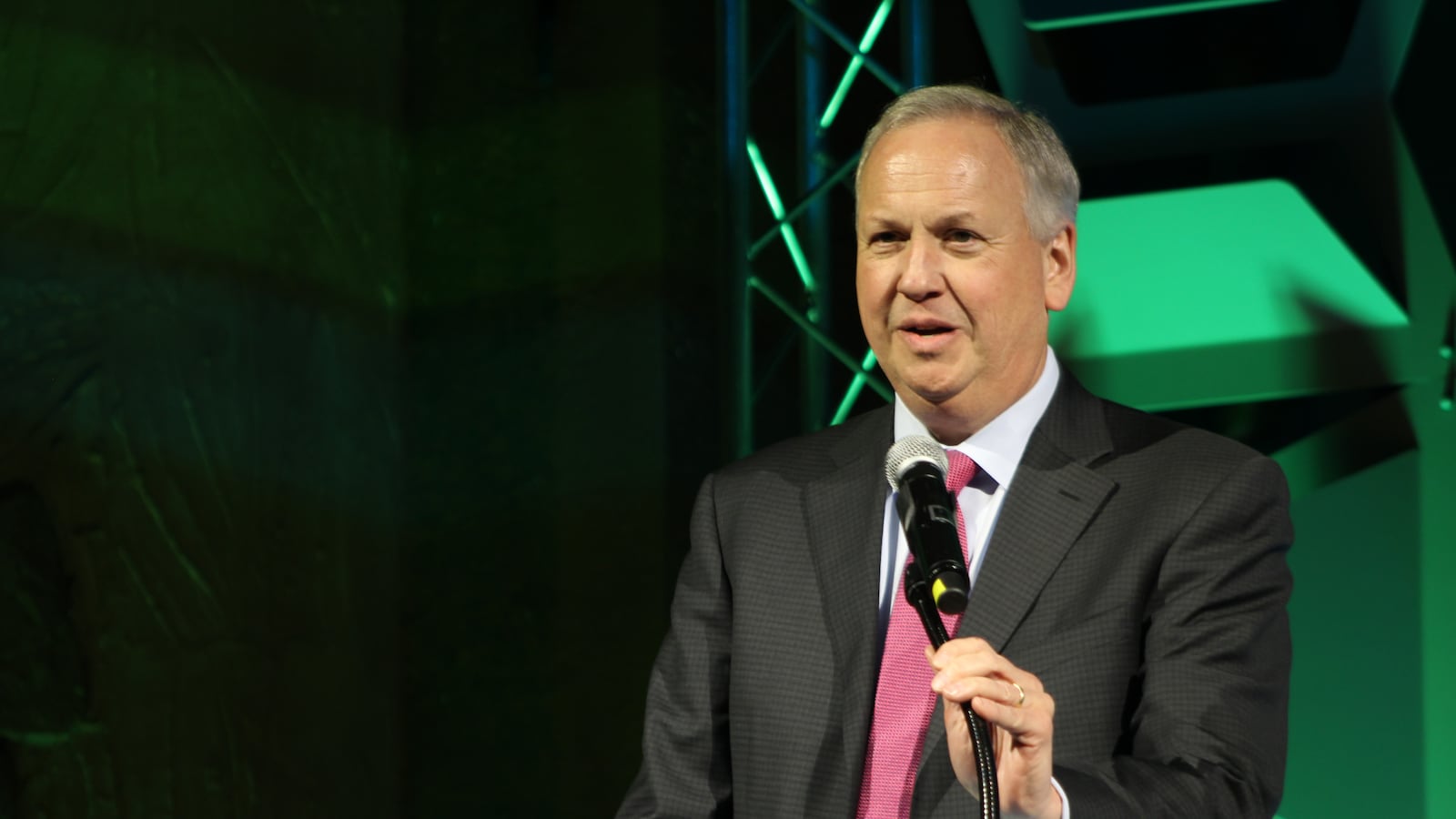As the school choice debate emerges as an issue in the presidential election, an architect of Indianapolis’ charter sector says the controversial schools aren’t fighting back strongly enough against their critics.
“We’re seeing a very concerted effort nationwide to try to suggest that charter schools as a whole are bad for public education, that they’re bad for kids,” said former Indianapolis Mayor Bart Peterson. “And the charter sector needs to step up its game and work a lot harder on telling the truth and telling the story about the successes of charter schools.”
Peterson, a Democrat, campaigned for the 2001 state law that allowed charter schools in Indiana, and as mayor, he oversaw the first charter schools in Indianapolis. He now leads Christel House, a network of local charter schools and international schools, and on Monday received an award from The Mind Trust, the city’s key advocacy group that he helped launch, for his work championing charter schools.
While the opposition to charter schools has been “relentless,” Peterson said the charter school movement grew complacent as it garnered momentum across the country over the past three decades as a way to give public education options to students in failing schools.
But now, charter schools face rising national backlash, in the wake of teacher strikes, wavering Democratic support, and several scandals involving the mismanagement of charter schools, such as inflating attendance numbers or pocketing public funds.
Still, in Indianapolis, charter schools have enjoyed strong bipartisan support and have forged an unlikely alliance with Indianapolis Public Schools to turn around or run schools within the district.
Such support made its way through the Indiana Roof Ballroom at The Mind Trust’s event Monday, coined as an evening of “Celebrating Education Progress.” Among the estimated 650 attendees were community education advocates, local government officials, state lawmakers, and a lineup of Indianapolis mayors past and present.
“We’ve made a lot of progress, but we can’t rest on our laurels,” said Indiana Commissioner for Higher Education Teresa Lubbers, who helped write charter school laws during her time as a Republican state lawmaker. “We still have plenty of work to do.”
The event also featured a musical performance by a student choir from Tindley Collegiate Academy, a charter school located on the city’s east side.
“You may shoot me with your words, you may cut me with your eyes,” read a student, still dressed in the school’s maroon uniform, from the poem “Still I Rise” by Maya Angelou amid the choir’s rendition of “Rise Up” by singer-songwriter Andra Day. “But still, like air, I’ll rise.”
Indianapolis is home to more than 50 charter schools. Charter advocates say increased competition between charter schools and district schools spurs better academic results. Some studies have shown that students fare better in charter or innovation schools than in traditional district schools.
“There’s a shared sense of responsibility and accountability for every single student now, more broadly than there was back when it was a ‘we’ vs. ‘they’ thing in the 2000s,” Peterson told Chalkbeat.
Still, Indianapolis charter schools have some vocal critics. While district leaders have quickly steered the innovation strategy over the past five years, the district is undergoing a time of transition as it searches for its next leader and after two innovation supporters on the school board were unseated by skeptics.
Some, such as Sen. Greg Taylor, a Democrat from Indianapolis, question whether Indiana has been choosy enough — and cautious enough — when it comes to opening charter schools.
“Charter schools can be an asset, but just like anything else, if you have too many, with very little regulation and little accountability, you can have too many,” said Taylor, who did not attend the event.
With a proliferation of charter schools in Indianapolis, groups like The Mind Trust are calling for quality over quantity. They advocate for strict vetting and oversight of charter schools and have supported the replication of proven charter schools. In Indianapolis, for example, charter networks like Tindley, KIPP, Herron, and Phalen have expanded after seeing some successes in their initial schools.
But as the charter scene matures, struggling schools are also closing — which charter advocates support as a method for holding the school and their authorizers accountable. Peterson said as an authorizer of charters, he considered it “a personal failure” when his office shut down a charter school in 2005 — Flanner House Higher Learning Center, which faced accusations that it had signed up and received public money for students that it could not account for.
“We know there are bad charter schools out there, and we shouldn’t apologize for those charter schools,” Peterson said. “We should try to get them to improve or see that they lose their charters and go away, and get kids into a school that is a high-quality school.”
Opponents often seize on malfeasance to call for an end to charter schools, but Peterson said it would be “appalling” to try to get rid of them.
“You know what it was like in this city before we had charter schools? A child was statistically destined to a certain life based on what their address was,” Peterson said. “Right now, there are a lot of options. … I believe I’ll live to see a day when they’re all high-quality in this city. And I can’t imagine someone wanting to turn the clock back.”

